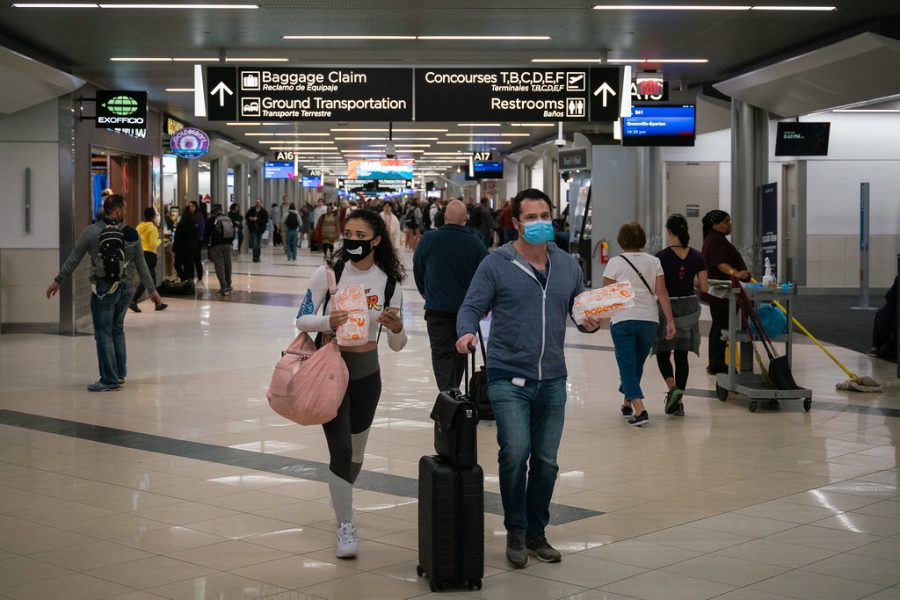What’s Going on with Omicron?
The world faces a new strain of the novel coronavirus
MORE CORONAVIRUS CHAOS. A new variant of the infamous novel coronavirus, Omicron, has been discovered. While virtually unknown to scientists, its potential for further health risks is concerning to health officials around the world. Photo Courtesy of Creative Commons.
The world pretty much thought that the worst of the infamous COVID-19 pandemic was behind it. According to the Ohio Department of Health, daily case rates in Ohio have declined from 13,391 in January 2021 to 6,647 as of November 2021. Stores, restaurants, and travel have begun opening back up to the public and returning to normal operations more and more as the months go by. Mask regulations have been relaxed. People are getting vaccinated. All signs pointed to a downhill battle. However, new studies show more obstacles on the road to a healthy and safe future free from COVID-19.
In the past few weeks, scientists discovered a new variant of the coronavirus in Southern Africa, the B.1.1.529 Sars-CoV-2 (Omicron) variant. Named after the 15th letter of the Greek Alphabet, the variant is virtually unknown to scientists. 17 states across the US and 38 countries around the world have reported cases so far. However, the variants’ actual dangers and particular characteristics remain a mystery to scientists around the world. As of right now, doctors are actively performing experiments and testing in a hurried attempt to understand Omicron as best they can and protect as many people as possible.
The transmissibility and severity of the variant are not yet known. Nothing is for sure. Infectious disease specialist, Dr. Jonathan Schiffer said the variant “really needs to be assessed in a systematic way, looking at very large numbers of people…[It] is going to take a bit of time to parse.” Omicron could be as severe and damaging as the Delta variant or could be unheard of in further news as have seven other variants of the coronavirus.
However, the mystery of the Omicron variant does not dismiss any concerns for its potential implications. According to the World Health Organization (WHO), “There is currently no information to suggest that symptoms associated with Omicron are different from those from other variants. Initial reported infections were among university students—younger individuals who tend to have more mild disease—but understanding the level of severity of the Omicron variant will take days to several weeks.” While most have had mild symptoms, it is completely unknown the symptoms of this variant.
One of Omicron’s most recent patients was a fully vaccinated individual, creating concern over the possible resistance of the variant to the vaccine. No matter what, WHO states “Vaccines [will] remain critical to reducing severe disease and death [regarding COVID-19].” The vaccine will greatly reduce the severity of any contraction of the virus and provide protection against getting any variant in the first place.
In addition, the prominent places the variant is spreading are largely unvaccinated, due to circumstances beyond their control. Vaccines are not readily available in large quantities to some other countries. This leads to the spreading of the variant even more in these places.
But so far, the most concerning part of the variant is its sheer presence. The ability of the coronavirus to mutate and create new strains is unpredictable. Only time will tell what the effects of the Omicron variant will be.
Your donation will support the student journalists of Sycamore High School. Your contribution will allow us to purchase equipment and cover our annual website hosting costs.











